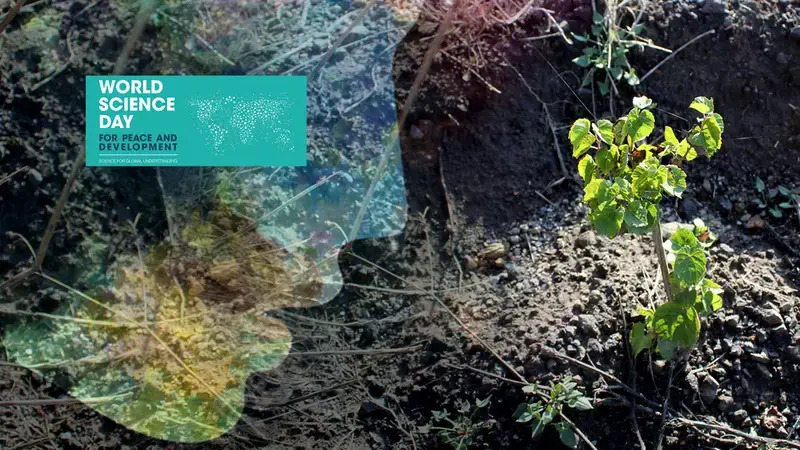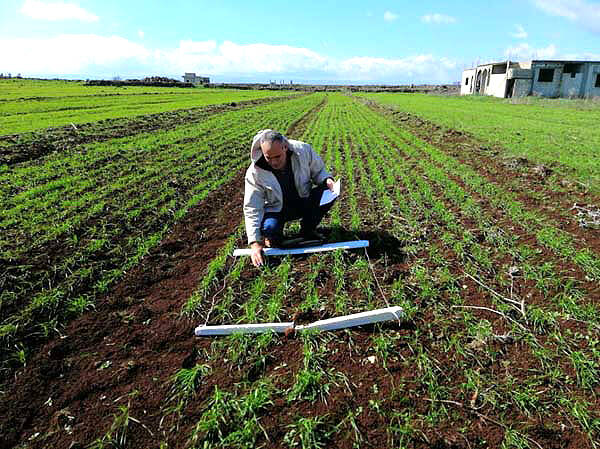A roadmap for food system recovery in fragile states and territories

World Science Day for Peace and Development highlights the key role that science plays in building and preserving peace. When crises erupt, such as climate-related events, conflict, economic upheaval, or a national epidemic, food systems fundamental to peace and stability can break down.
For decades, ICARDA scientists have provided CGIAR's agricultural expertise to fragile dryland states and territories such as Syria, Lebanon, Sudan, Afghanistan, Iraq, Palestine, and Yemen, delivering timely relief and rolling out innovative research-based solutions specific to dryland conditions.
Our host country arrangements and the trust we have built over four decades in the region make ICARDA one of the few, in some cases the only, international organization that can work directly with national agricultural partners, donors, and UN agencies to fully and independently implement agricultural restoration projects there.
When national food systems collapse
If a state or territory goes into shutdown due to crises like pandemics or conflict, food systems are often the first structures to decay, resulting in unrest such as mass displacement, famine, further violence, and increased instability.
-
Value chains erode due to a lack of transport for produce and market access difficulties for consumers.
-
Farmworkers cannot reach farms, leaving crops unplanted, livestock unattended, and harvests missed. Simultaneously, large numbers of displaced people can put extreme pressure on farms that continue operating or neighboring countries and cities.
-
Critical inputs such as fertilizers and seeds become unavailable as local or international imports dry up or prices rocket.
-
Damaged water infrastructure no longer supplies to crops and livestock.
-
Technical support stops as agricultural extension services cannot reach farms, and regional training and inter-farm support halts.
In the short term, a state or territory's ability to feed its population shrinks, but the longer-term impacts can be especially devastating. Farms are abandoned, neglected, or ruined, seed stocks and farm inputs depleted, and value chains wrecked. Probably the most damaging aspect is that even post-crisis farmers may resort to conservative survival strategies that set back years of agricultural gains made through scientific innovation, research, and development.
A strategic approach to food system restoration in fragile states and territories
Mandated under agencies such as the United Nations, we immediately conduct a rapid and accurate assessment of a crisis's impact on the local food system. We do this through a combination of digital technologies and a long-held network of agricultural experts collecting data on the ground to identify the best recovery measures. Simultaneously our researchers begin to restore national genebank and seed systems, along with critical livestock and water system infrastructure. Safeguarding the local crops and animal heritage supports the rapid multiplication and distribution of seeds to farming communities and gets water and livestock systems back on track.
To fill gaps in agricultural extension and support, ICARDA delivers innovative climate-smart solutions that provide smallholders with high yielding, fast-maturing, and nutritious crops and improve small ruminants' meat quality, milk production, and hardiness. At the same time, ICARDA experts help farmers get their technical knowledge back on track to better manage their agricultural production and create new job opportunities, including within farm-to-market value chains.
ICARDA also ensures that national agricultural research partners' staff receive up-to-date training to improve the capacities of rural farmers, advisors, and scientific researchers towards achieving food security through diversified farming systems, enhanced water productivity, and value chain development, and entrepreneurship for youth and women.
Case Study – ICARDA in Syria
With FAO, ICARDA's ongoing work in Aleppo and Homs helps rehabilitate the country's seed sector by producing basic seed stocks of wheat, barley, chickpea lentil, towards the multiplication of certified seed and eventual dissemination to national farmers. ICARDA's experimental platform in the Bekaa Valley of Lebanon supports Syria's field experiments, seed multiplication, and capacity development for Syria's food systems. ICARDA also implements an FAO-funded water management training programs to introduce recent irrigation techniques and rainwater harvesting to increase agricultural production with particular focus on soil-water-plant-atmosphere relationships and concepts and principles of agricultural water use efficiency and water productivity. In cooperation with UNDP, ICARDA implemented a conservation agriculture project in Aleppo and Hama, demonstrating the benefits of reducing soil disturbance in a fragile, dry environment and saving soil humidity. This reduces the number of seeds required for crops, limits the energy needed for cultivation, and results in higher productivity and net profit than with conventional farming.
Investing now saves later
We are convinced that investing in a local agriculture sector today creates a more robust and resilient food system in the face of future crises. Considering the intensifying impact of climate change on already vulnerable dryland communities, rolling out adaptation and mitigation measures is urgently needed to improve their future livelihood resilience even outside of unexpected destructive events. If other factors such as exponential population growth, land degradation, increasing water scarcity, urbanization, conflicts, and shocks such as COVID-19 coincide, a perfect storm situation may occur. Should this be the case, a robust food system is critical to improving a state or territory's ability to feed its population. Unless this takes place, stability will always remain out of reach.
More About Our Work in
Fragile States and Territories

